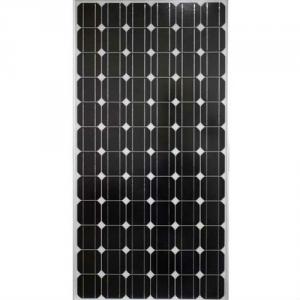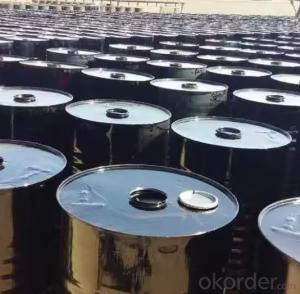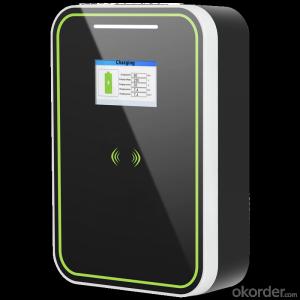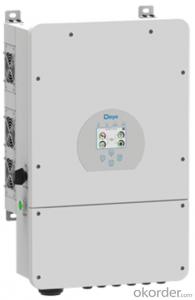Loading Port:Shanghai
Payment Terms:TT OR LC
Min Order Qty:728 pc
Supply Capability:2000000 pc/month
Advantage:
1.Widely using of the most popular and mature type of modulesfor on-grid system.
2.Specifications subject to technology and test conditions,GSUN Solar reserves the right of final interpretation.
3.Leading manufacturing technology in PV industry, strictly controlling the quality of raw materials and the process of producing.
4.100% EL inspection, ensures modules are defects free.
5.Cells binned by current to improve module performance.
6.Anti reflective glass. Not only to increase the light absorption, but also to make the module has the function of self-cleaning in water environment, effectively reducing the power loss caused by dust.
7.Outstanding performance in low-light irradiance environments.
8.Excellent mechanical load resistance: Certified to withstand high wind loads(2400pa) and snow loads(5400pa).
9.High salt and ammonia resistance.
10.Positive power tolerance:0-+5w.
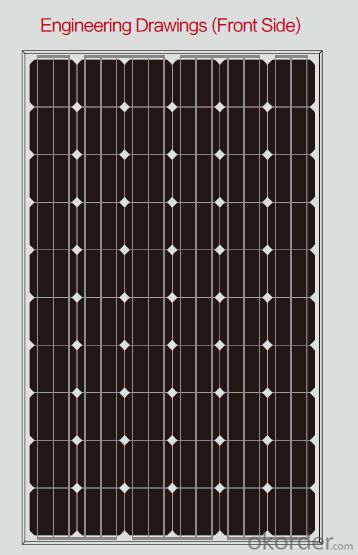
Specification:
Temperature Coefficient
NOCT | 45℃±2℃ |
Temperature Coefficients of Isc (%/℃) | 0.0492 |
Temperature Coefficients of Voc (%/℃) | –0.3374 |
Temperature Coefficients of Pmp (%/℃) | –0.4677 |
Performance Parameters
31.9 | |
Max Power Current Imp(A) | 7.85 |
Open Circuit Voltage Voc(V) | 37.7 |
Short Circuit Current Isc(A) | 8.85 |
Max Power Pm(W) | 250 |
Mechanical Data
Dimension | 1655 x 992 x 40 mm |
Weight | 22.5kg |
No. of Cells and Connections | 60 (6 x 10) |
Tolerance | 0~+5W |
Cell | Monocrystalline Cell 156 x 156 mm |
Packing | 624 Pcs/40ft(H) Container |
Warranty
5 years product warranty
10-years 90% of Min. rated output power,and 25-years 80% of Min. rated output power warranty
Comprehensive Certificates:
CE Certificate
ISO 9001:2008:Quality management systems
IEC61215、IEC61730
TUV and UL
IDCOL for Bangladesh
Feature:
- High efficiency, multicrystalline silicon solar cells with high transmission and textured glass deliver a module effi ciency of up to 16.0%,minimizing installation costs and maximizing the kWh output of your
system per unit area.
- Tight positive power tolerance of 0W to +5W ensures you receive modules at or above nameplate power and contributes to minimizing module mismatch losses leading to improved system yield.
- Top ranking in the “TÜV Rheinland Energy Yield Test”
FAQ:What's your products warranty?
No less than 90% within 10yrs and no less than 80% within 25yrs.
FAQ:What's the power range can you supply?
We can supply from 5W to 315W solar panels.
FAQ: Can you design the solar system?
Yes, We can supply the battery and controller/inverter for your system with the solar panels together.
FAQ:How much Power can I expect to get from my Solar PV’s?
Typically an installed 1kWpk array will produce 800kWh/year. 2kWpk will produce 1600kWh/year and so on.
Why are PVs rated in kWpk rather then kilowatts?
kWpk means the power expected to be generated under the comparatively ideal conditions known as STC. In other words, a 100Wp panel will produce a maximum of 100W in peak (STC) conditions - this is equivalent to a bright sunny midsummer day in the UK.
How can I connect my Solar PV system to the grid?
You will need to use a grid-tie inverter. If you wish to get paid for the electricity you produce, you will need to ensure a G83-certified inverter is used and that it is installed by a Microgeneration Certification Scheme member whose membership number will need to be provided to your electricity supplier.
How much will I get paid for the electricity I feed into the grid?
If you install a qualifying small system (1-4kWpk) in the UK before October 2012 you will get paid 16 pence for every kWh you generate regardless of whether you use it yourself or export it to other users. This is a generation tariff or feed in tariff. It will go up each year in line with inflation. If you also use the electricity you have generated this means you do not have to buy it from the electricity company and so you will save around 11-15p per kWh at todays prices (Prices subject to change of course). Energy you generate but don't use yourself, i.e. you export it to the electricity company, will attract another payment to you of 4.5p per kWh. This payment is also index linked to the RPI so it will increase in line with inflation.
Is it true that I can get my electricity meter can spin backwards?
Not usually, nor is it legal to do this. The very old meters may cause this to happen however the company installing your PV will advise you if you need to ask for a meter replacement from the company supplying your electricity. This is usually free of charge.

